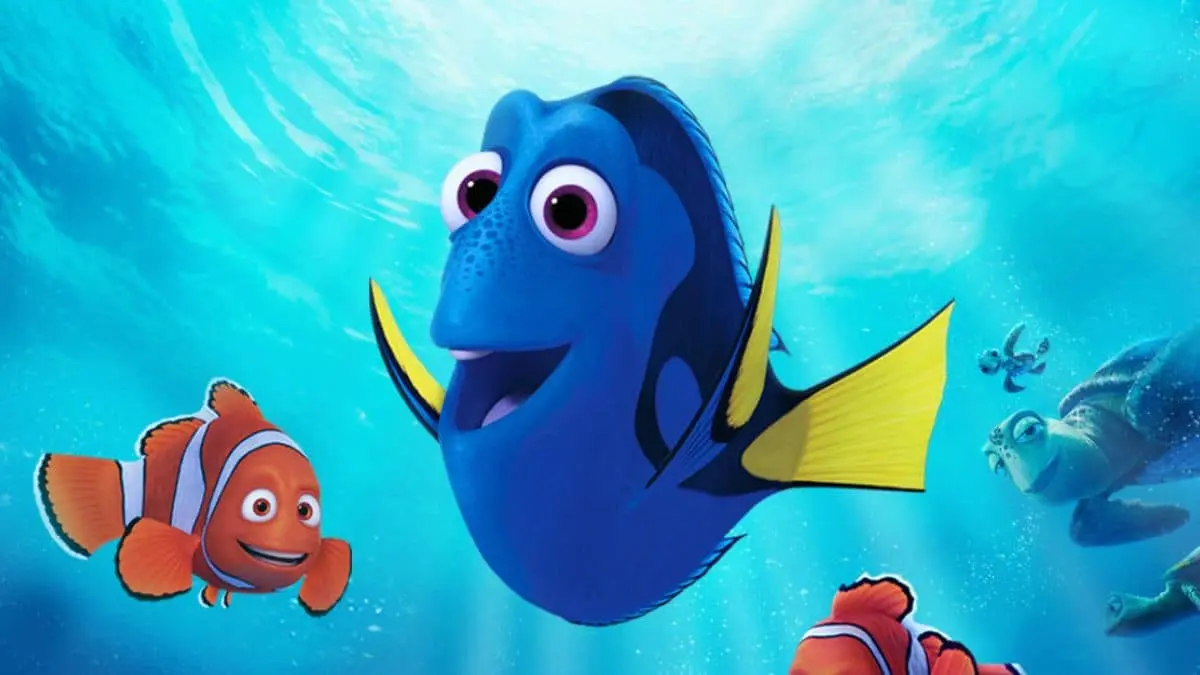- “Just keep swimming” serves as a reminder that consistent effort often yields results, even if the progress …
- Emotionally, the idea of “just keep swimming” can translate to resilience.
- The act of “just keep swimming” can be a manifestation of intrinsic motivation.
- This “active coping” style is precisely what “Just keep swimming” encourages us to do.
- The mantra “Just keep swimming” serves a similar function.
- From a neuroscientific perspective, the act of “moving forward,” even in small steps, can release dopamine, …
In the enchanting world of “Finding Nemo,” a story of marine adventure unfolds that captivates audiences of all ages. Beyond the vivid colours, lovable characters, and humour, the film is also a treasure trove of life lessons. One particular gem that has caught the imagination of viewers is the simple phrase: “Just keep swimming.” Uttered by Dory, the forgetful yet undeniably wise blue tang fish, these three words serve as more than just an in-the-moment coping mechanism for the characters. They encapsulate a philosophy of resilience, hope, and persistence that can guide us through the turbulent waters of life.
The Figurative Interpretation
While “Just keep swimming” serves as a literal survival motto for Dory and her aquatic friends, its implications resonate far beyond the ocean depths. When viewed through the lens of metaphor, the phrase evolves into a universal mantra for resilience, adaptability, and relentless pursuit of goals, no matter the adversity faced.
Overcoming Life’s Challenges
Life often throws curveballs that can knock us off balance—be it a career setback, a personal tragedy, or the simple yet overwhelming stresses of day-to-day living. In such times, the instinct might be to freeze or give up. However, Dory’s catchphrase reminds us of the power of moving forward, even when the path is unclear. Just as a fish swims against the current to survive, sometimes we must forge ahead despite hardships, focusing on the journey rather than the uncertainties that lie ahead.
The Power of Persistence
The phrase also serves as a testament to the importance of persistence. Realizing dreams or achieving goals rarely occurs overnight. Whether you are working on a long-term project, striving to improve a relationship, or tackling a personal challenge, the journey can be long and fraught with difficulties. “Just keep swimming” serves as a reminder that consistent effort often yields results, even if the progress isn’t immediately apparent.
Emotional Resilience
Emotionally, the idea of “just keep swimming” can translate to resilience. Life’s disappointments and heartaches may bring sorrow, but they don’t have to define us. By adopting a “just keep swimming” mentality, we condition ourselves to find constructive ways of dealing with emotional pain, transforming our hardships into opportunities for personal growth and development.
Adapting to Change
The phrase is also a call for adaptability. Dory doesn’t swim in one direction mindlessly; she navigates through coral reefs, avoids predators, and finds her way through mazes. Similarly, merely moving forward isn’t enough. We must also adapt to new circumstances and change our strategies as needed, while maintaining a forward-facing orientation towards our goals.

Psychological Perspective
At its core, the phrase “Just keep swimming” not only resonates with us emotionally but is also underpinned by various psychological theories and research studies. Understanding these can offer us tools to apply this wisdom in a practical sense.
The Importance of a Growth Mindset
Psychologist Carol Dweck’s concept of a “growth mindset” aligns well with the philosophy of “Just keep swimming.” A growth mindset encourages us to see challenges as opportunities for development rather than as impassable obstacles. Just as Dory doesn’t see a dead-end as a defeat but rather as a chance to explore a new route, adopting a growth mindset can help us approach difficulties with a proactive, problem-solving attitude.
Self-Determination Theory and Intrinsic Motivation
Self-Determination Theory, developed by Deci and Ryan, suggests that autonomy, competence, and relatedness are essential factors for intrinsic motivation. The act of “just keep swimming” can be a manifestation of intrinsic motivation. When one focuses on the process rather than the outcome, it’s easier to persist in the face of adversity. Intrinsic motivation sustains the drive to “keep swimming” when external rewards are either uncertain or far off in the future.
The Psychology of Resilience
Researchers in the field of positive psychology have long been interested in the concept of resilience, or the ability to bounce back from setbacks. One of the key strategies for building resilience is to take proactive steps, no matter how small, towards solving a problem or improving a situation. This “active coping” style is precisely what “Just keep swimming” encourages us to do.
Cognitive Behavioral Approaches
In cognitive-behavioral therapy (CBT), the focus is often on changing one’s mindset to affect behavior positively. The mantra “Just keep swimming” serves a similar function. It acts as a cognitive reframing tool that can help shift focus from insurmountable challenges to achievable actions, thereby fostering a sense of agency and control.
The Dopamine Factor
From a neuroscientific perspective, the act of “moving forward,” even in small steps, can release dopamine, the “feel-good” neurotransmitter. This creates a positive feedback loop that makes the effortful act of “swimming” through challenges more bearable, and even rewarding.
Conclusion
From the vibrant underwater world of “Finding Nemo” to the complex landscapes of human emotion and aspiration, the phrase “Just keep swimming” has proven to be more than just a catchy line. It’s a universal mantra that speaks to the very core of human struggle and triumph, backed by psychological theories that validate its power. This three-word phrase, simple yet profound, encapsulates an ethos of resilience, adaptability, and indefatigable spirit.
Also Read: You can’t go back and change the beginning, but you can start where you are and change the ending.



